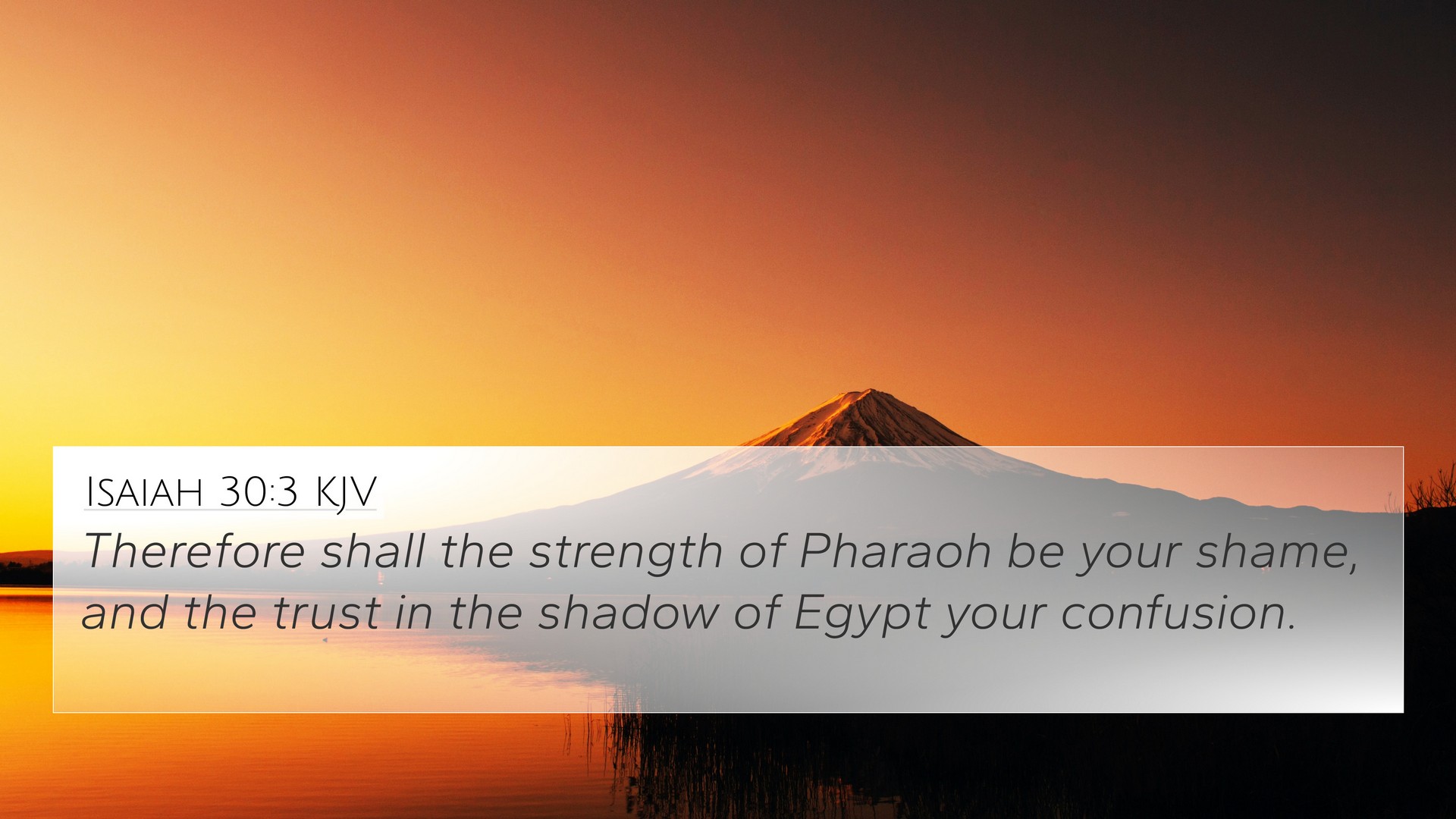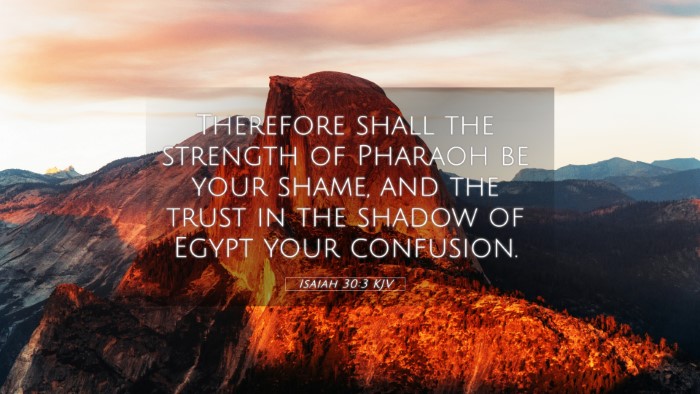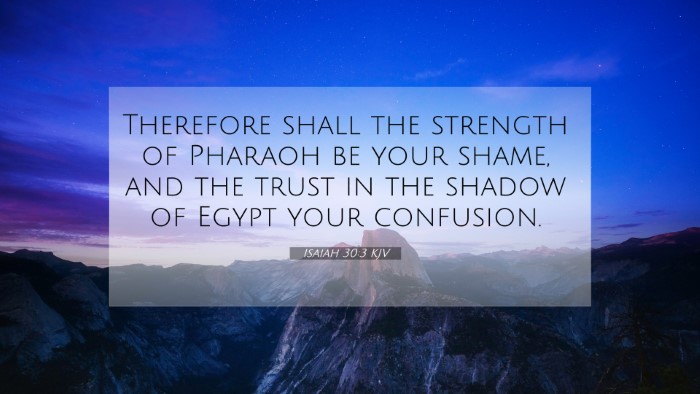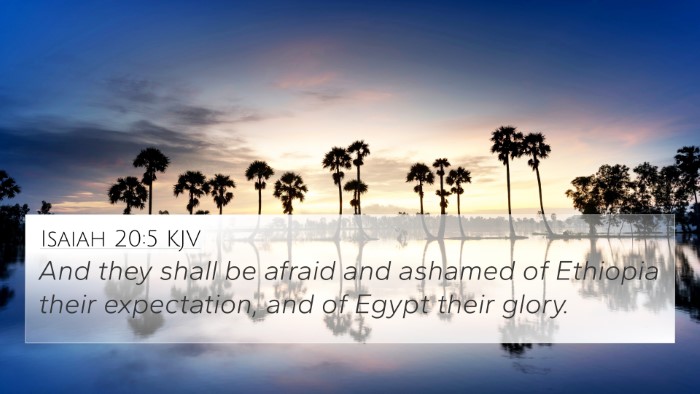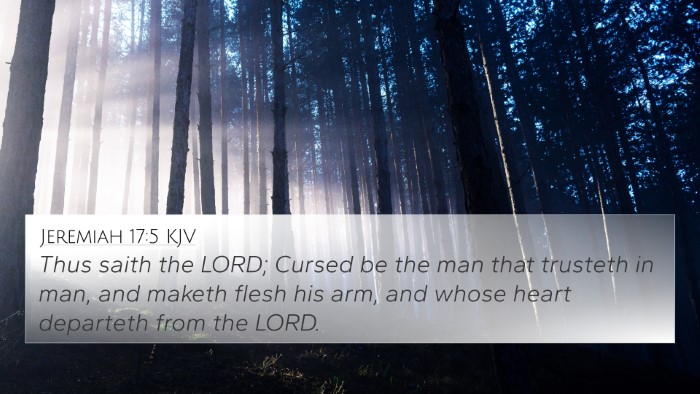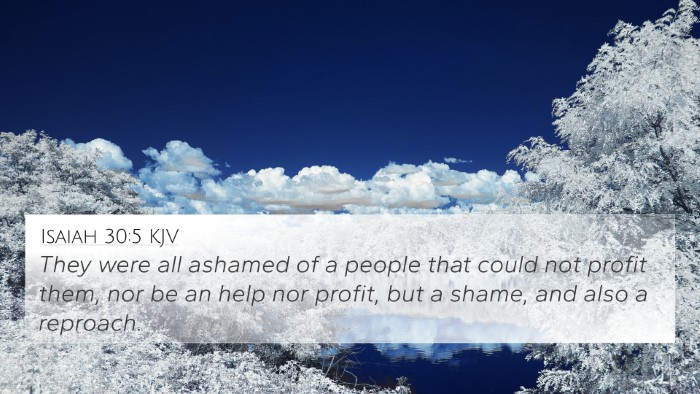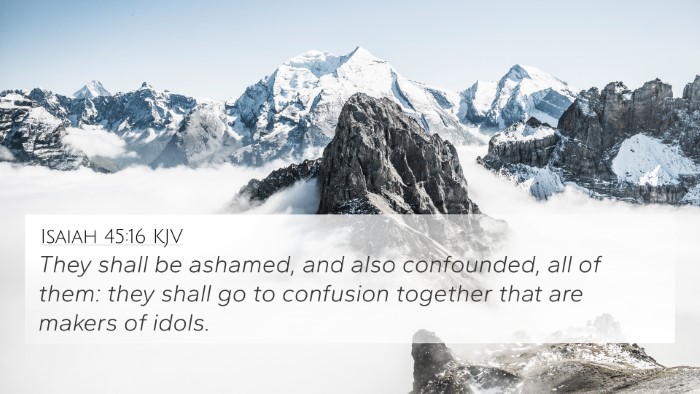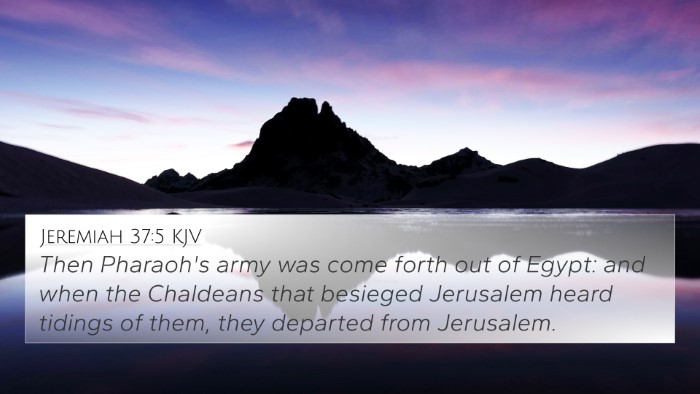Understanding Isaiah 30:3
Verse: Isaiah 30:3 - "Therefore shall the strength of Pharaoh be your shame, and the trust in the shadow of Egypt your confusion."
This verse serves as a warning against reliance on foreign powers, specifically Egypt, which symbolizes worldly strength and security. The prophet Isaiah addresses the people of Israel, highlighting the futility of placing their trust in human alliances rather than in God.
Summary of Insights
In drawing on the works of Matthew Henry, Albert Barnes, and Adam Clarke, we find rich interpretations of this verse that reveal its deeper meanings:
-
Matthew Henry's Commentary: Henry emphasizes the idea that turning to earthly powers for help can lead to disappointment and shame. He notes that the "strength of Pharaoh" signifies a temporal, unreliable support that ultimately betrays those who depend on it. Henry teaches that true strength and safety are found in God alone.
-
Albert Barnes' Notes: Barnes discusses the historical context of Israel's relationship with Egypt, illustrating the danger of seeking alliances with nations that do not honor God. He underscores that such actions lead to confusion and a loss of spiritual clarity, expressing the futility in relying on human alliances.
-
Adam Clarke's Commentary: Clarke provides a detailed analysis of the metaphorical meanings behind "the shadow of Egypt." He suggests that this shadow represents false security and the deceptive allure of human wisdom, which ultimately cannot provide the protection and guidance that comes from God. Clarke encourages readers to seek refuge in divine wisdom rather than in worldly counsel.
Related Themes and Cross-References
This verse can be interpreted within a broader thematic context in Scripture that discusses reliance on God versus reliance on man. Several Bible verses align closely with Isaiah 30:3, creating thematic connections that contribute to our understanding:
- Jeremiah 17:5-7: "Cursed is the man who trusts in man and makes flesh his strength, whose heart departs from the Lord." This verse parallels Isaiah 30:3 by starkly contrasting trust in human strength with trust in God.
- Psalms 118:8-9: "It is better to trust in the Lord than to put confidence in man." This verse reinforces the message of Isaiah, highlighting the superiority of divine trust over human alliances.
- Proverbs 3:5-6: "Trust in the Lord with all your heart, and lean not on your own understanding." This encourages total reliance on God’s guidance instead of worldly wisdom.
- Isaiah 31:1: "Woe to those who go down to Egypt for help, and rely on horses, who trust in chariots because they are many, and in horsemen because they are very strong." This verse directly warns against seeking help from Egypt, closely mirroring the message in Isaiah 30:3.
- 2 Kings 18:21: "Now, behold, you rely on the staff of this broken reed, on Egypt; on which if a man leans, it will go into his hand and pierce it." This illustrates the idea of reliance on Egypt as ultimately detrimental.
- Matthew 6:24: "No one can serve two masters... You cannot serve God and mammon." This New Testament verse encourages a singular focus on God alone and aligns with the warning in Isaiah regarding divided loyalty.
- Isaiah 20:5: "They shall be afraid and ashamed of Ethiopia their expectation and Egypt their glory." A continuation of the theme of shame attached to misplaced trust in Egypt.
Tools for Bible Cross-Referencing
For anyone looking to delve deeper into the connections and references in the Bible, utilizing various tools for Bible cross-referencing is highly beneficial:
- Bible Concordance: A valuable resource for locating verses that share themes, keywords, or similar concepts.
- Bible Cross-Reference Guide: These guides provide extensive lists of related verses, helping readers navigate biblical themes more effectively.
- Cross-Reference Bible Study: Engaging in cross-referencing allows for deeper insight into how various scriptures correlate with one another.
- Bible Reference Resources: Resources such as study Bibles with built-in cross-references can provide instant access to related verses during scripture study.
Conclusion
Isaiah 30:3 serves as a potent reminder of the consequences of misplaced trust and reliance on worldly powers rather than faith in God. Through the insights of prominent commentators and numerous biblical cross-references, we gain a clearer understanding of this powerful message. In studying scripture, utilizing tools for Bible cross-referencing significantly enhances one’s ability to uncover the interconnectedness of biblical themes and deepen one’s faith.
